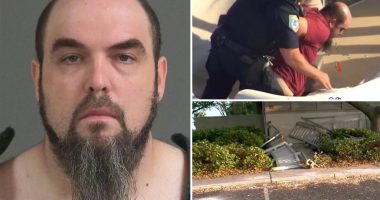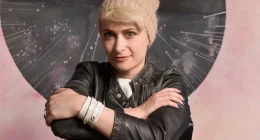In the weeks leading up to his violent death, former Royal Air Force serviceman Adrian Humphreys grew increasingly excited about taking his new camper on its first trip.

Instead, the Rotorua-based Humphreys was stabbed five times as he lay in his sleeping bag before he staggered outside, blood pouring from his torso, his life ending slumped on the grass outside.
Less than six hours later, his body was found by a mentor from START Taranaki, a Kaponga-based organisation that specialises in helping troubled young people.
Enrolled on that course in May last year was 16-year-old Justice Williamson-Atkinson, who the Crown now says murdered the unsuspecting camper with a knife from the campground’s kitchen, motivated by a desire to steal Humphreys’ car.
In her opening address in the High Court at New Plymouth on Tuesday, Crown prosecutor Jo Woodcock said Humphreys had simply found himself in the wrong place at the wrong time.
Williamson-Atkinson has denied a charge of murder, and another of committing a burglary with a weapon.
However, Woodcock said the Crown would show through the evidence collected it could only have been him who stabbed Humphreys to death, before he stole his victim’s phone and case containing valuables before disposing of them in thick bush surrounding the campground.
Included in that evidence was Humphreys’ blood on a sweatshirt found in Williamson-Atkinson’s tent, while his DNA was found in the cut marks of the sleeping bag.
Read Related Also: The Great San Fran Cleanup Begins

Woodcock said there was also a string of inconsistencies in what the accused said after Humphreys’ body was found.
They included a claim that he had heard the victim arguing with “a guy” outside, although his story changed when interviewed by police, when he claimed he was in a deep sleep after taking his medication, something the Crown said he refused to take that night.
In an intercepted phone call between Williamson-Atkinson and his girlfriend, police also heard him say that his mother knew what he had done, but he was told to stick to his story.
He later told police that an associate had killed Humphreys, and he had simply moved the knife.

Defence counsel Matt Phelps focussed his opening on that point, telling the jury that it was that associate, who was also on the START programme, who had killed Humphreys.
Phelps said his client was not in the camper when Humphreys was killed, and he does not accept any evidence which said he had confessed to the killing to family members.
The first five of 40 Crown witnesses then gave evidence throughout the day, including START mentor Kajin Phillips, who described Williamson-Atkinson as a “good kid” who struggled to follow instructions.
The trial continues today.






